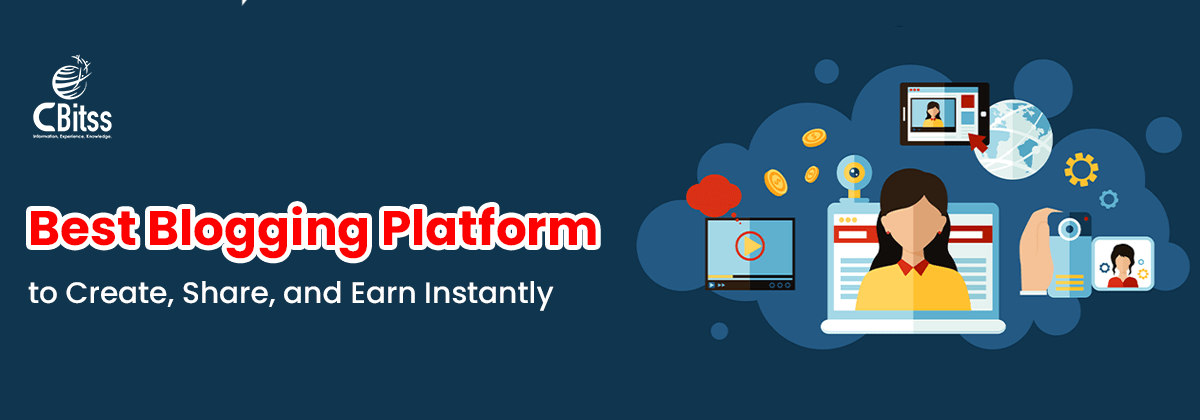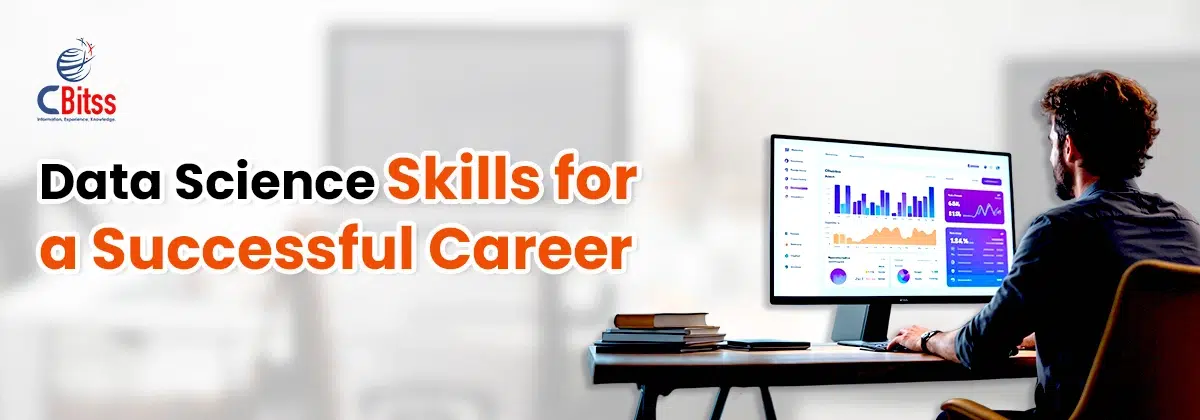Table of Contents
ToggleIntroduction
With rapid advances in information technology, data science has become the backbone of modern industries. Organizations, regardless of whether it is in business, management, or research, rely on data-driven decisions.
Data science has been one of the most rewarding professions as far as digital economy work is concerned. Global organizations are in search of individuals who are capable of analyzing and gigantic datasets.
Nevertheless, with the development of technologies, there is an increase in competition in this profession. Many skilled experts are entering the market, making mastery of technical expertise essential. A coding skill is not the only necessary condition to succeed. It requires multiple skills that integrate the technical skills and business awareness with adaptability.
Want to find out the data science skill set for a successful career? Here is the article that is to be your guide. In the end, you will discover the technical knowledge, business understanding, and the required soft skills to succeed in this competitive field.
The Role of a Data Scientist
If you are wondering what you will be doing as a Data Scientist?
Look no further. This will further give you all the knowledge you are seeking.
- A data scientist does not only build models.
- They translate business needs into technical solutions.
- They search for information and form a hypothesis to get an improved understanding.
- The profession demands curiosity, adaptability, and collaboration.
Key responsibilities include:
- Raw data collection and organization.
- Model outlines in the form of prediction or classification.
- Reporting on results to non-techno stakeholders.
Explore more about Python in Data Analysis.
Programming Skills as the Foundation
To be a data scientist, you need to master programming because it is the cornerstone of this profession. So, before you decide to choose this path, make yourself aware that without coding expertise, you cannot manipulate datasets or automate analysis.
Essential languages include:
| Language / Tool | Purpose / Use |
| Python | Versatile with libraries like Pandas, NumPy, and Scikit-learn for analysis and machine learning. |
| R | Statistical modeling, hypothesis testing, and advanced visualizations. |
| SQL | Querying and managing structured databases efficiently. |
| Java | Useful for big data frameworks like Hadoop and Spark. |
| Scala | Supports distributed computing and large-scale data processing. |
| SAS | Popular in finance and healthcare analytics for statistical analysis and reporting. |
If you master all these, you will be able to code independently and efficiently. You can also check Technologies after Python.
Strong Mathematics and Statistics Knowledge
Additionally, remember that learning mathematics is essential if you want to pursue data science. This will ensure reliability in analysis. It serves as the backbone for algorithm design.
Additionally, statistics are also required because they help to validate findings.
Crucial areas include:
- Linear algebra for deep learning.
- Probability for risk assessment.
- Hypothesis testing for data validation.
Therefore, if you have a solid mathematical grounding, you will have fewer errors and enhance trust. Learn the Difference between Data Science and Analytics.
Data Wrangling and Cleaning
To be honest, real-world data is messy. Professionals must clean and prepare it before analysis. This step consumes most project time but ensures accuracy.
Common techniques:
- Removing duplicate entries.
- Handling missing values.
- Normalizing datasets for consistency.
- Identifying outliers that distort models.
Data Visualization for Impact
Another important thing is Data visualization. It has a great impact in this field. It’s because this turns numbers into stories. And most executives prefer visuals over raw reports.
· Popular tools include: Tableau, Power BI, and Matplotlib.
So, using clear visuals can help stakeholders make faster decisions. Storytelling with charts improves influence and credibility.
Machine Learning and Deep Learning
Both fields use machine learning to drive innovation, while deep learning with neural networks expands their possibilities.
Core areas to master:
- Classification and regression supervised learning.
- Unlabeled learning: clustering and dimensionality reduction.
- Deep learning: computer vision and natural language processing.
Those who use these methods skillfully earn recognition from employers.
Big Data Technologies
Large-scale data present themselves to specialized tools. A traditional software is not scalable.
Major technologies of importance are:
- Distributed storage using Hadoop.
- Spark in real-time analysis.
- Such cloud systems as AWS and Azure.
This expertise serves industries that have to deal with streaming or unstructured data. Understand more with What is Data Science?
Data Science Skills Needed Across Industries
Since industries differ in nature, development, and services, they are in need of different data sets. These various industries require various applications.
For instance:
- Finance detects trends of fraud using predictive analytics.
- Medical uses Algorithms in diagnostics.
- Personalization and demand forecasting are applied in retail.
- Predictive maintenance is useful in manufacturing.
Therefore, choose which field you want to work in. Get your skills in demand in the industry because career specialization benefits the industry.
Communication and Business Acumen
Communication bridges the gap between data and action. Once you learn the business priorities, you will ensure that your solutions can accomplish real impact. You should remember that good professionals:
- Share current knowledge understandably.
- Concentrate on strategic results.
- Business-minded questions.
Such a mixture will give your technical work a sense of purpose and significance.
Data Science Soft Skills
To excel in the data science field, you have to remember that technical strength alone is not sufficient. Data science soft skills will shape leadership potential.
Examples include:
- Critical thinking for evaluating solutions.
- Problem-solving to overcome obstacles.
- Collaboration in cross-functional teams.
- Adaptability during technological changes.
In the working field, employers will recognize your soft skills as essential for long-term success.
Emerging Trends
Since there is rapid development in the tool, there is a need to seek new frontiers by professionals.
Trends in the present day are:
- Creative Generative AI.
- Robot learning.
- Responsible for designing AI.
- Automation by computer vision.
If you stay updated with current advances, you can be assured of relevance in your career. Discover Top Data Science Trends.
Ethics and Data Responsibility
The data scientist should strike a balance between innovation and accountability. Privacy and equity cannot be overlooked. The important practices are:
- Learning about such regulations as GDPR.
- Escape algorithmic bias.
- Data security.
Keep in mind that credibility and trust are enhanced by ethical consciousness.
Gain practical skills employers demand in today’s market.
Also Read -
Top Data Science Skills for Career Growth
In the present day, employers always seek a person who holds a combination of technical expertise and continuous learning.
Top areas include:
- Advanced machine learning knowledge.
- Hands-on project experience.
- Networking with professionals.
- Certifications for credibility.
Therefore, investing in these creates long-term opportunities.
Building a Set of Data Science Skills for a Successful Career
Follow a structured learning plan if you want to stay consistent.
Steps to follow:
- Begin with mathematics and programming.
- Advance into machine learning and AI.
- Practice with real-world datasets.
- Share projects on platforms like GitHub or Kaggle.
As a result, this completed skill set will prepare you for diverse roles.
Tools and Platforms for Professionals
Modern workflows require the right platforms. Avoid tools that slow down your workflow. Instead, use efficient platforms that accelerate results.
Useful tools include:
- Jupyter Notebooks for experimentation.
- GitHub for collaboration.
- Docker for deployment.
- Cloud environments for scalability.
These resources boost speed and collaboration.
Career Opportunities
Data science can open multiple career paths for you.
Roles include:
Data Analyst
Machine Learning Engineer
Business Intelligence Specialist
Data Science Manager
Data Engineer
AI/Deep Learning Specialist, etc.
If you have enough flexibility, it can even allow you to shift industries or roles easily.
Challenges in the Field
With every positive thing, there is a negative side too. Therefore, this journey is the same. It is rewarding but not simple. Professionals often face challenges such as:
- Constantly evolving tools.
- Pressure for quick results.
- Privacy and security regulations.
- Ambiguous data requirements.
However, if you have resilience and creativity, it will help you overcome these challenges.
The Future of Data Science Careers
There is so much opportunity in what data science will be like in the future, and it is waiting for those who are proactive learners, like you!
In the new generation of jobs, AI and automation, and ethical decisions will define roles. Staying curious, trying out new tools, and general lifelong learning would make you stand out.
Learning the data science skills for a successful career will not only enable you to keep up with change. But you can be in charge of it.
Start building, exploring, and innovating today, and position yourself in the next-generation data-driven world.
Get certified and boost your career growth opportunities.
Conclusion
A successful career in data science does not only mean learning to code. It requires learning a whole set of skills. Expert knowledge mixed with acumen in communication, flexibility, and a moral compass make you nearly unreplaceable. Be curious, take on real-world projects, and never stop learning.
Data science skills for a successful career are not just knowledge but tools to innovate, lead, and create impact. Get started now, continue to experiment, and build a data-driven future.
Ready to start your journey in Data Science? Visit us at CBITSS and take the first step toward your successful career.

What Is Protocol Analyzer

Why Rabbit MQ is Crucial

Best Blogging Platform to Create, Share, and Earn Instantly




